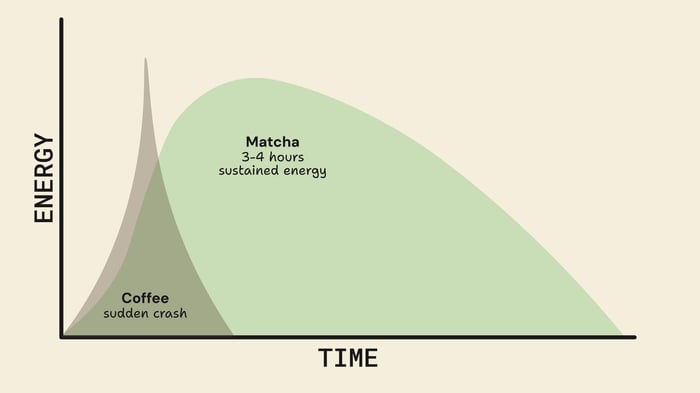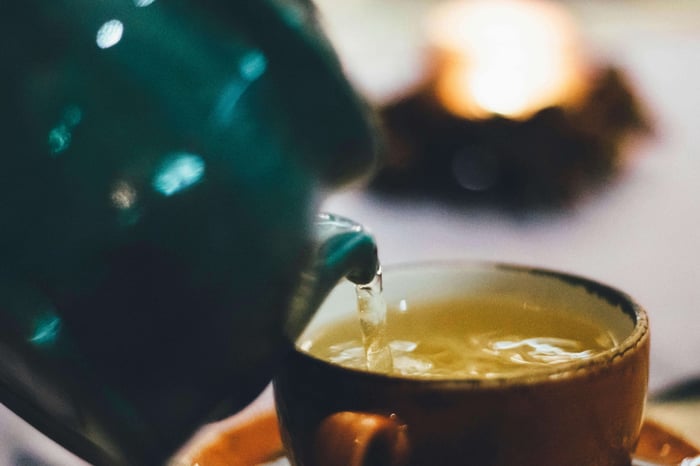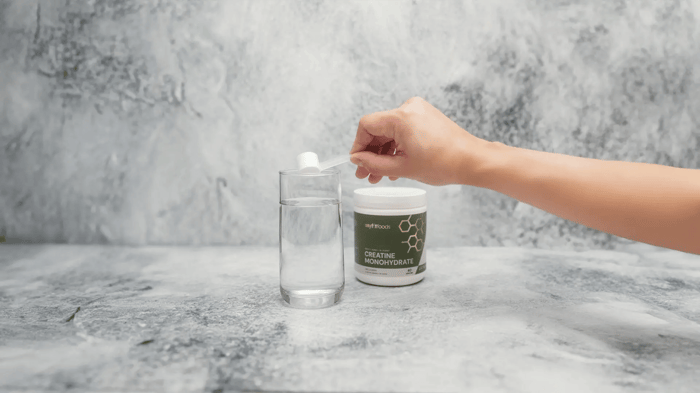Will drinking green tea burn fat?
When I mix black tea and white tea, will I get grey tea?
Will drinking chamomile and rooibos tea help me get into medical school?
Yes, no, and perhaps…?
Oolong time no see, Fit Fam! It's tea time here at MyFitFoods, where we’re answering all your burning questions about tea and how it will aid you on your health journey.
This month, MyFitFoods is going all in on green, starting with the launch of our Super Squeezed Fit Juices! We’re feeling so energized from our green juices that we had to share more green goodness tips and tricks with you, our loyal readers.
If you're here to find out whether drinking green tea will burn fat (spoiler alert: it does!), the reasons why may surprise you.
Green tea has been extensively studied, and while its benefits may sound too good to be true, the science conducted over many decades backs them up. We’re here to break down the research and give you practical, easy-to-implement ways to make tea time a part of your fit routine.
Go Green Tea, Go Green Tea
Green tea is brewed from the dried leaves of the Camellia Sinensis plant. These leaves are packed with powerful compounds: 35% of their weight comes from polyphenols (you may remember the power of polyphenols from this Fit Tip blog).
Polyphenols are a type of phytonutrient, a broad category of beneficial compounds found in plants and vegetables. They are well-known for their:
Anti-inflammatory properties
Antioxidant properties
Let me say that one more time: green tea is composed of 35% polyphenols.
Other foods extremely rich in polyphenols include berries, spinach, and garlic. No matter how you get your polys in, prioritizing these compounds is essential for a well-rounded diet.
“Studies show that people who have polyphenol-rich diets - consuming more than 650 milligrams per day - have lower death risks than those who get less than 500 milligrams per day.” (1)
Catch-All Catechins
The group of polyphenols found in green tea is called catechins (cat-eh-kins). These powerful polyphenols act crucially as hormone facilitators and inhibitors, playing key roles in many of green tea’s incredible health benefits.
The primary catechin in green tea is called EGCG (Epigallocatechin Gallate).
Other sources of EGCG include:
Black tea
White tea
Berries
Dark chocolate
But keep in mind, there is no richer source of EGCG than green tea. Each cup delivers between 50–100 mg of this potent antioxidant, making it the gasoline in the engine of the green tea health train.
Numerous studies indicate a positive link between green tea consumption and weight loss. This meta-analysis found that frequent green tea drinkers experienced an average additional weight loss of 1.3 kg (2.8 lbs) compared to those who didn’t drink it.
There are plenty of reasons why green tea can be a valuable asset in your weight loss journey, and this is just the tip of the tea bag.
A Great Green Boost
Green tea helps you expend extra energy throughout the day. Consider our Weight Gain 101 Blog: calories burned must exceed calories consumed, in order to put today in a fat-burning box.
What's great is that green tea will actually help you burn some of those calories, so when we asked the initial question, Will green tea burn fat? The answer is yes, and here’s how:
Release the Norepinephrine
Green tea increases fat burning by activating the sympathetic nervous system (your fight-or-flight response) through the release of norepinephrine. This neurotransmitter signals your body to mobilize energy.
The more norepinephrine we have in our systems, the more energy our body burns. When your heart is racing from a workout or having run from a bear (thank our ancestors), that's the norepinephrine talking.
Because fat is stored energy, the release of norepinephrine tells your body to start using all that pesky fat.
This study found that green tea helped reduce waist circumference.
This is especially significant because waist fat = visceral fat, aka the most dangerous type of fat. Visceral fat surrounds vital organs and releases inflammatory hormones linked to heart disease and type 2 diabetes.
But wait, there’s more (I feel like a green tea salesperson). Green tea’s catch-all catechins inhibit the release of COMT, an enzyme responsible for breaking down norepinephrine. By blocking COMT, green tea keeps norepinephrine active in your system for longer, leading to:
increased energy expenditure
better metabolic function
enhanced fat oxidation
Pretty straightforward, right?
Caffeine, Your Local Metabolic Booster
Another way green tea ignites metabolism is through its caffeine content.
For comparison:
An 8-oz cup of coffee contains about 80–100 mg of caffeine.
An 8-oz cup of green tea contains about 30–50 mg of caffeine.
What makes green tea’s caffeine unique is its gradual release, providing a more sustained energy boost without the sharp spike and crash often associated with coffee, as illustrated below:

Catechins + Caffeine = A Metabolic Boost
Together, catechins and caffeine work to raise metabolism by about 4%, as highlighted here:
“The present study provides evidence that consumption of a beverage containing green tea catechins, caffeine, and calcium increases 24-hour EE by 4.6%...” (2)
Now, 4% may sound minimal, and truth be told, it is. But when it comes to burning calories and keeping every day a fat-burning day (instead of a fat-storing one), I’ll take all the help I can get! But wait, there’s (still) more…
Burn While You Rest
Your resting metabolism, or basal metabolic rate (BMR), refers to the energy your body expends to maintain essential functions like breathing and circulation while at rest.
Green tea also increases overall metabolism at rest by approximately 4%, as indicated by this study published in the American Journal of Clinical Nutrition.
Again, 4% might not seem like much, but consider this: it’s a 4% increase in your total metabolism while you do absolutely nothing.
Inhibits Glucose Absorption
These same catch-all catechins in green tea help inhibit glucose (sugar) absorption by blocking the activity of two key digestive enzymes:
Alpha-amylase
Alpha-glucosidase
These enzymes are responsible for metabolizing carbohydrates specifically and converting them into glucose for absorption in the bloodstream.
One study demonstrated that a combination of green tea, black tea, and mulberry tea inhibited glucose absorption by 25% when consumed alongside a high-carb meal (in this case, rice).
This means 25% of the rice participants ate was not converted into glucose, not absorbed into the bloodstream, and did not cause a blood sugar spike. Instead, the carbs simply passed through the digestive system, unnoticed like a shadow in the night.
Reduce Appetite
Hunger isn’t just about how long it’s been since your last meal; it’s also influenced by a hormone called ghrelin. Known as the hunger hormone, ghrelin levels rise when you're hungry and decrease after eating. The higher the ghrelin, the hungrier you feel.
A study found that green tea’s catechins help reduce ghrelin levels. This is a game-changer for weight loss because less hunger means eating less, making it easier to stay in a calorie deficit and log today as a fat-burning day. In this same study, participants who consumed green tea extract for 12 weeks experienced an average weight loss of 1.6 kg (3.5 lbs).
L-Theanine for the Win!
As if these benefits weren’t enough, let’s talk about the amino acid L-theanine, found in green and black tea. This compound is closely linked to:
improved mood
reduced anxiety
better sleep
L-theanine stimulates serotonin and dopamine release, which explains why you feel great when drinking green tea. If you haven’t experienced this yet, what in the green tea are you waiting for?
Furthering mood benefits, L-theanine also enhances brain activity by increasing alpha waves, which are associated with relaxation and mental clarity. Interestingly, these same alpha waves are also present in nicotine and have the same appetite-suppressing effects commonly associated with nicotine.
Ultimately, when dopamine, serotonin, and alpha waves are elevated, the desire to snack or stress eat is substantially reduced.
"Don’t Forget About Me!" – Black Tea
Black tea, like green tea, comes from the Camellia Sinensis plant. The key difference is the way the leaves are processed.
Black tea is fully oxidized, meaning the leaves are exposed to air, darkening in color and developing a stronger, bolder flavor.
Green tea is not oxidized, which helps retain its green color and fresh taste.
But black tea isn’t just about being dark and mysterious; it also boasts many of the same powerful health benefits as green tea, including:
Polyphenols & Catechins – Protect cells and reduce the risk of heart disease and cancer
L-theanine – Promotes relaxation, reduces stress, and eases anxiety
According to this study:
Drinking at least two cups of black tea daily lowers the risk of death from any cause by almost 13% compared to those who do not drink tea. As with other findings, the more tea participants drank, the lower their risk of cardiovascular disease, heart disease, and stroke.
Just a friendly reminder from your friends at MyFitFoods: this positive health association was only seen in those who did not add milk or sugar to their tea. So don’t go getting any wild ideas!
For best results, keep that tea clean so you can stay lean and mean!

Ending the Day with Tea
We’ve explored how green tea and, to a large extent, black tea possess caffeine-boosting and antioxidant-rich properties that make them the perfect warm drink to start your day. But tea doesn’t have to be reserved just for mornings; it is also the perfect way to end your day, as many of you well know.
Chamomile and rooibos teas are excellent nighttime companions, helping you wind down and prepare for deep, restorative rest.
Rooibos Tea
Rooibos, meaning Red Bush and sometimes known as red tea, is a naturally caffeine-free herbal tea loaded with rich antioxidants, with benefits including:
Aiding in digestion
Supporting allergy and inflammation relief
Promoting skin and muscle health
Providing essential minerals like magnesium, potassium, zinc, and calcium
Ready to Sleep?
Rooibos tea is known to have a relaxing effect on the central nervous system and is considered one of the top teas to simmer down with at the end of the day.
Why? Because of its magnesium and calcium content, two essential minerals that support healthy sleep.
Calcium helps promote sleep by:
Aiding in melatonin production
Supporting neural functioning for sleep regulation
By drinking rooibos before bedtime, you help boost your body’s natural calcium levels, supporting better rest.
Magnesium is another key mineral:
Known for its calming effects on the nervous system
Helps regulate melatonin, promote muscle relaxation, and ease the body into a restful state
Together, the minerals in rooibos help conclude your day peacefully and prepare your body and mind for quality sleep.
Chamomile
Last and certainly not least, chamomile tea is perhaps one of the most acclaimed of the sleepy-time tea varieties, and it’s not hard to see why.
General benefits of chamomile tea include:
Aiding with menstrual symptoms due to its anti-inflammatory and anxiety relief properties (3)
Potential to lower blood sugar in diabetics thanks to anti-inflammatory effects that help protect pancreatic cells
Possible cancer-fighting effects due to the antioxidant apigenin (we know about the detox power of apigenin from this blog)
The primary driver of chamomile’s effect on enhancing sleep quality lies in apigenin, which binds with GABA receptors in the brain, boosting melatonin production, promoting sleepiness, and inducing relaxation. Apigenin also helps to reduce the stress hormone cortisol, and chamomile tea is even regarded by some as a mild tranquilizer.
At the beginning of the blog, we asked the question: "Will drinking rooibos and chamomile tea before bed help me get into med school?"
It’s a silly question, and of course, these teas won’t get you through your medical residency but the power of prioritizing and facilitating deep, restorative rest should never be underestimated.
The benefits of deep, quality sleep are numerous and have been further expanded on in our MyFitFoods blog. But let’s just say there’s a reason why rest is one of our four crucial pillars of good health (alongside nutrition, exercise, and hydration).
Tee Off with Green Tea
For green month, we’re excited about all things green, starting with our Super Squeezed Juices and ending with green tea. MyFitFoods doesn’t sell green tea, black tea, or rooibos tea, but we want you sipping it! Only if you want, of course, and all things in moderation, because never forget:
There is no substitute for water.
As many of our readers know, when it comes to the lifelong journey of pursuing and maintaining good health, there are absolutely no shortcuts. The core elements: healthy eating, movement, hydration, and rest, are non-negotiable. But as we often explore, there are plenty of small tips and tricks that can give you a little wind beneath your sails.
And we think green tea can be one of those tailwinds worth unleashing. With its inexpensive price tag and proven antioxidant power with metabolism-boosting benefits, there’s no reason not to throw tea into your weekly rotation.
And don’t forget: unlike coffee, the caffeine in green tea releases gradually, offering a more gradual and sustained energy boost.
MyFitFoods isn’t just passionate about sharing our healthy prepared meals with the world, we love to educate, inspire, and share wellness tips that help you achieve your goals. Because after all, we don’t just sell delicious food, we sell results.
So next time someone asks: "Will drinking green tea burn fat?", consider sharing this article and grabbing that friend for a tea time.
If you’re anything like me, you’ll probably be reaching for green tea a little more often...




